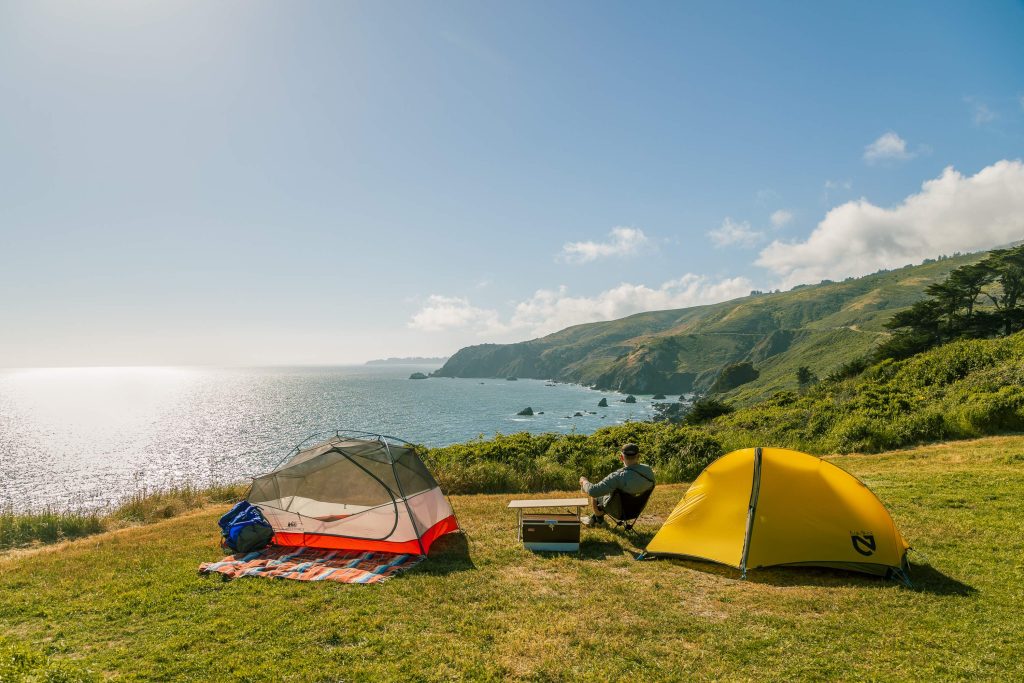Camping is a popular outdoor activity that allows people to connect with nature, relax, and recharge. However, with the increase in popularity of camping, it is essential for campers to practice Leave No Trace principles to minimize their impact on the environment. Leave No Trace is a set of outdoor ethics that emphasize responsible behavior and a respect for nature. By following these principles, campers can enjoy the great outdoors while preserving it for future generations.
1. Plan Ahead and Prepare
The first step in leaving no trace while camping is to plan ahead and prepare for your trip. This includes familiarizing yourself with the regulations and guidelines of the area you will be camping in, obtaining any necessary permits, and packing appropriately. Make sure to bring all the necessary gear and supplies, such as a tent, sleeping bag, food, water, and a first aid kit. By being prepared, you can minimize your impact on the environment and ensure a safe and enjoyable camping experience.
2. Camp in Designated Campsites
When setting up camp, it is important to choose designated campsites whenever possible. These areas are typically equipped with amenities such as fire pits, picnic tables, and toilets, which help concentrate camping impact in one area. By camping in designated campsites, you can prevent the spread of trash, minimize soil erosion, and protect vegetation. Avoid setting up camp on fragile vegetation or near water sources to reduce your impact on the environment.
3. Dispose of Waste Properly
Proper waste disposal is essential when camping to prevent pollution and protect wildlife. Bring garbage bags to pack out all trash, including food scraps, wrappers, and toilet paper. Avoid burying or burning trash, as this can attract animals and harm the natural environment. Dispose of human waste in designated toilets or by digging a cathole at least 200 feet away from water sources, campsites, and trails. Pack out all hygiene products and biodegradable waste to leave no trace of your presence in the wilderness.
4. Minimize Campfire Impact
Campfires are a popular camping tradition, but they can have a significant impact on the environment if not managed properly. When building a campfire, use established fire rings or fire pits to contain the flames and prevent them from spreading. Keep the fire small and use only dead and downed wood for fuel to minimize the impact on live trees and vegetation. Never cut live trees or branches for firewood, as this can damage the ecosystem and contribute to deforestation. Make sure to fully extinguish the fire before leaving by dousing it with water and stirring the ashes to ensure it is cold to the touch.
5. Respect Wildlife
Wildlife encounters can be a highlight of camping, but it is important to respect animals and their natural habitat. Keep a safe distance from wildlife and never feed or approach them, as this can disrupt their natural behavior and put both them and yourself at risk. Store food and scented items in bear-proof containers or hung from a tree away from your campsite to prevent animals from being attracted to your camp. Do not disturb nesting birds or other wildlife habitats, and keep pets on a leash to prevent them from chasing or harassing wildlife.
6. Leave What You Find
One of the key principles of Leave No Trace is to leave what you find in nature undisturbed. This means refraining from collecting rocks, plants, or other natural objects, as they are an essential part of the ecosystem. Avoid building structures or rearranging natural features, such as rocks or logs, to leave the landscape as you found it. Leave flowers, rocks, and other natural objects for others to enjoy and preserve the beauty of the wilderness for future generations.
7. Respect Other Campers
When camping in a shared outdoor space, it is important to respect other campers and their right to enjoy nature. Keep noise levels to a minimum, especially at night, to avoid disturbing other campers and wildlife. Follow campground rules and regulations, such as quiet hours and restrictions on pets, to ensure a peaceful and harmonious camping experience for all. Be considerate of others by keeping your campsite clean and organized, and by offering assistance or advice to fellow campers when needed.
In conclusion, leaving no trace while camping is essential to protect the environment, wildlife, and natural beauty of the wilderness. By following Leave No Trace principles and practicing responsible outdoor ethics, campers can minimize their impact on the environment and preserve the outdoors for future generations to enjoy. Plan ahead and prepare for your trip, camp in designated campsites, dispose of waste properly, minimize campfire impact, respect wildlife, leave what you find, and respect other campers to ensure a sustainable and enjoyable camping experience. Remember, leave only footprints, take only memories, and leave no trace behind.

